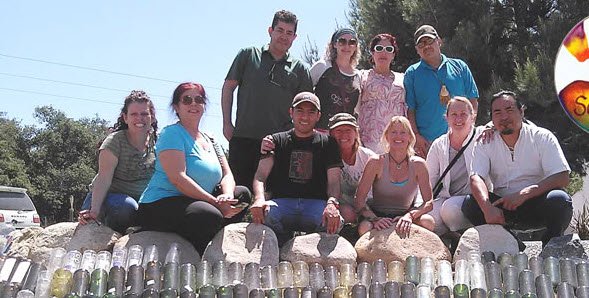Effectiveness
Substance Addictions
Many factors play into whether or not any one specific individual will be effectively relieved of their addiction by Ibogaine treatment. These factors can include the type of substance the patient is addicted to, the amount of time the addiction has existed in that person, the frequency and amount of substance the patient historically has taken, post-treatment social factors such as emotional support, the number of times the patient has been in any kind of treatment center before, the level of suffering the patient has experienced from their addiction, and the dedication the patient has to remaining drug free after their treatment.
So, while it can easily be seen that assigning a probability for success to any one patient would be a difficult thing based upon the complexity of factors involved and the difficulty of evaluating them, it is our experience from treating almost 1,000 patients with Ibogaine and our many years of experience, that the majority of patients will be drug free six months post treatment and most lack of future drug free success can be attributed to environmental factors (spousal addiction, medical pain treatment needs, social factors, environmental surroundings.) Ibogaine is a chemical dependency reset of the brain, so it reduces the amount of medication needed to treat chronic pain after treatment.
Many patients who have been treated with Ibogaine report that it “resets their brain” to a point before their addiction developed.
The patients, desperate for relief from the obsession of these compulsive painful thoughts, often engage in a wide variety of behaviors to distract themselves or in an attempt to regain control over their lives.
These chemical imbalances and the destructive thoughts, beliefs and behaviors that accompany them often eventually results in complete mental disability.
Ibogaine, being a catalyst for psycho-spiritual change works at the very engine that empowers many mental illnesses and mood disorders, namely the ability of patients to healthfully interpret and process their past experiences, paving the way for envisioning a free and happy future.
Many patients report that Ibogaine not only brings them back to a state of mental clarity providing them with a vision of a wonderful opportunity-filled future, but as importantly, it leaves them there in that state of mental clarity; a place where they are not only freed from crippling emotions, but also restored chemically, freeing the patient from the abnormal mental states of depression, anxiety and mania.
Aftercare Defined
Aftercare refers to any subsequent interventions that follow the initial treatment. In the case of addiction treatment, it will often refer to the additional support that is given following release from the residential part of the program. This may occur in the form of support groups, booster sessions, counseling, or follow-up meetings. The aftercare can be in the form of debriefings, or it may involve teaching new skills and coping strategies.
 The Risk of Relapse
The Risk of Relapse
Up to 50% of those who make it through an Ibogaine treatment program will later relapse. Those who relapse may never get another opportunity to recover. This is a depressing fact, but the good news is that relapse is preventable. The highest risk of relapse is during the first 60 days following discharge from treatment. Aftercare increaes the success rate to over 95%.
